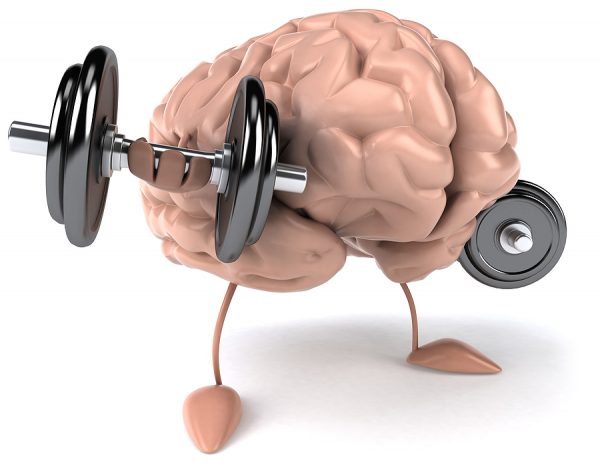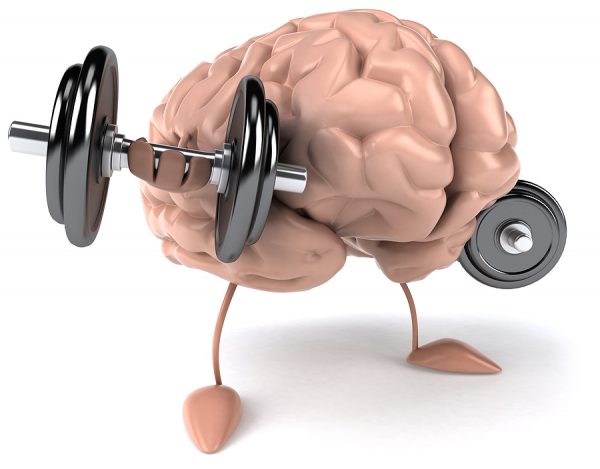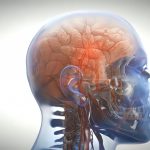By David Blyweiss, M.D., Advanced Natural Wellness
Not very long ago, scientists believed that when we lost communication between brain cells, those connections were lost forever. But there is one nutrient that can actually increase the communication between your brain cells.
The nutrient I’m talking about is phosphatidylserine (PS). It is an all-natural substance that your doctor probably won’t tell you about. In fact, he probably doesn’t even know about it. That’s because, these days, medical schools don’t teach their students enough about natural health care solutions.
Now, when you’re young, your body produces plenty of PS. But once you hit your 40’s, the levels of production start to drop and communication between the brain cells begins to decrease. As time goes on, this will gradually result in memory loss and mental decline.
But if you boost your PS levels, you can protect your nerve cells, neurons and myelin to help improve brain cell communication.
So whether you’re 40 years old, 60 or even 80, PS is critical to keeping your mind sharp, alert and operating at full-speed.
When you take PS it can …
- Boost your concentration and memory
- Sharpen your mental energy and clarity
- Improve reasoning and problem-solving skills
- Help reduce the risk of cognitive decline and dementia
What is a Nootropic?
When we talk about substances that improve mental performance the way PS does, we call them a “nootropic.” The official definition of a nootropic from Merriam-Webster is “a substance that enhances cognition and memory and facilitates learning.”
But PS isn’t the only natural brain-enhancing compound available to you.
I also like a nootropic herb called Bacopa. It contains compounds called saponins that work to enhance nerve impulse transmissions and repair damaged neurons. Saponins may also help reduce the beta-amyloid protein deposits that slow down thinking and memory. It only takes about 20 mg daily to produce brain-healthy benefits.
There is also turmeric. You learned a lot about this ancient spice in the June 13th issue of Advanced Natural Wellness.
Turmeric is loaded with a powerful antioxidant called curcumin that improves mood, memory and attention abilities. And over the long term, daily curcumin intake can reduce the systemic chronic inflammation that may affect your brain and thought process.
Plus, curcumin is shown to reduce amyloid and tau accumulation in the amygdala and hypothalamus. These two regions control memory, emotions and decision-making processes that are necessary for day-to-day living.
Another great brain booster is ashwagandha. It’s an impressive herb when it comes to improving memory, concentration and thinking skills. In adults with mild cognitive decline it not only boosts memory. It also enhances executive function, attention and information processing speeds. Ashwagandha also has the potential to neutralize the toxic effects of beta amyloid deposits. Plus, it appears to boost acetylcholine activity. This is a brain neurotransmitter required for proper memory, brain function and motor control.
The Nootropic Effect of Foods
In addition to nootropic supplements, certain foods also act to enhance your brainpower.
For example, the anthocyanins found in strawberries and blueberries can increase certain signals in the brain center that help improve memory recall.
Eggs are very high in a nutrient called choline, which is needed to produce acetylcholine in your brain. Low levels of acetylcholine greatly increase your chances of dementia. Since the choline is concentrated in the egg yolks, make sure to eat the entire egg and not just the whites.
The flavanols found in dark chocolate boost blood flow to key areas of the brain. This, in turn, sharpens the mind, boosts thinking skills and increases brain performance.
Green leafy vegetables are full of antioxidants that protect your brain. This includes foods like spinach, kale, broccoli, cabbage and Brussels sprouts. In the long-running Nurse’s Health study the researchers found women who ate the most of these veggies had slower mental decline and were able to lower their brain age by one to two years.
And the healthy fats found in extra virgin olive oil, nuts, seeds and fatty fish are proven to reduce inflammation, increase blood flow to the brain and help clear amyloid plaques that are associated with Alzheimer’s.
While there is no sure-fire way to prevent cognitive decline, these nootropics can make noticeably positive improvements on your memory and go a long way toward keeping your brain firing on all cylinders for years to come.
SOURCES:
Glade MJ, Smith K. Phosphatidylserine and the human brain. Nutrition. 2015 Jun;31(6):781-6.
Kato-Kataoka A, Sakai M, Ebina R, Nonaka C, Asano T, Miyamori T. Soybean-derived phosphatidylserine improves memory function of the elderly Japanese subjects with memory complaints. J Clin Biochem Nutr. 2010;47(3):246-255.
Cenacchi T, Bertoldin T, Farina C, Fiori MG, Crepaldi G. Cognitive decline in the elderly: a double-blind, placebo-controlled multicenter study on efficacy of phosphatidylserine administration. Aging (Milano). 1993 Apr;5(2):123-33.
Aguiar S, Borowski T. Neuropharmacological review of the nootropic herb Bacopa monnieri. Rejuvenation Res. 2013;16(4):313-326.
Fernando Gómez-Pinilla. Brain foods: the effects of nutrients on brain function. Nat Rev Neurosci. Jul 2008; 9(7): 568–578.
Small GW, et al. Memory and Brain Amyloid and Tau Effects of a Bioavailable Form of Curcumin in Non-Demented Adults: A Double-Blind, Placebo-Controlled 18-Month Trial. Am J Geriatr Psychiatry. 2018 Mar;26(3):266-277.
Choudhary D, Bhattacharyya S, Bose S. Efficacy and Safety of Ashwagandha (Withania somnifera (L.) Dunal) Root Extract in Improving Memory and Cognitive Functions. J Diet Suppl. 2017 Nov 2;14(6):599-612.
Gopukumar K, Thanawala S, Somepalli V, Rao TSS, Thamatam VB, Chauhan S. Efficacy and Safety of Ashwagandha Root Extract on Cognitive Functions in Healthy, Stressed Adults: A Randomized, Double-Blind, Placebo-Controlled Study. Evid Based Complement Alternat Med. 2021 Nov 30;2021:8254344.
Kurapati KR, Atluri VS, Samikkannu T, Nair MP. Ashwagandha (Withania somnifera) reverses β-amyloid1-42 induced toxicity in human neuronal cells: implications in HIV-associated neurocognitive disorders (HAND). PLoS One. 2013 Oct 16;8(10):e77624.
Singh M, Ramassamy C. In vitro screening of neuroprotective activity of Indian medicinal plant Withania somnifera. J Nutr Sci. 2017;6:e54.
Devore EE, Kang JH, Breteler MM, Grodstein F. Dietary intakes of berries and flavonoids in relation to cognitive decline. Ann Neurol. 2012 Jul;72(1):135-43.
Margara-Escudero HJ, Zamora-Ros R, de Villasante I, Crous-Bou M, Chirlaque MD, Amiano P, Mar J, Barricarte A, Ardanaz E, Huerta JM. Association Between Egg Consumption and Dementia Risk in the EPIC-Spain Dementia Cohort. Front Nutr. 2022 Feb 23;9:827307.
Kang JH, Ascherio A, Grodstein F. Fruit and vegetable consumption and cognitive decline in aging women. Ann Neurol. 2005 May;57(5):713-20.
Explaining how extra virgin olive oil protects against Alzheimer’s disease. Press Release. American Chemical Society. Mar 2013. Martínez-Lapiscina EH, Clavero P, Toledo E, San Julián B, Sanchez-Tainta A, Corella D, Lamuela-Raventós RM, Martínez JA, Martínez-Gonzalez MÁ. Virgin olive oil supplementation and long-term cognition: the PREDIMED-NAVARRA randomized, trial. J Nutr Health Aging. 2013;17(6):544-52.






